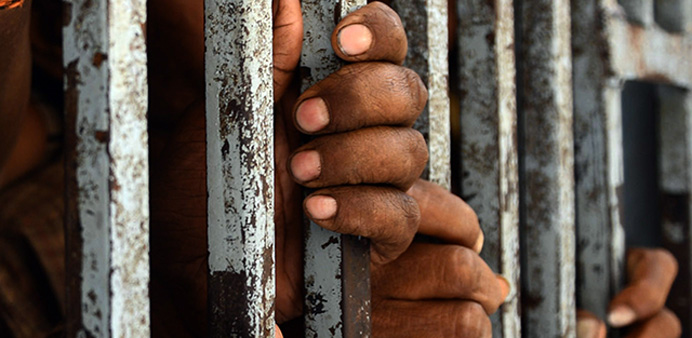AFP/ Colombo
UN experts Wednesday urged Sri Lanka to speed up probes into suspected secret detention centres after they inspected a former illegal prison complex in the island's northeast during their visit.
Wrapping up a 10-day trip to the country, the UN delegation said it toured the little-known 12-cell prison hidden inside a sprawling naval base in the port city of Trincomalee.
The prison had markings on the walls that indicated people were still being held there until 2010 -- one year after the island's long-running separatist war ended, the group said.
"It is likely that there are many more like this," said Ariel Dulitzky, a member of the UN Working Group on Enforced or Involuntary Disappearances. "Trincomalee is a success story in detecting illegal detention centres."
Sri Lankan authorities are investigating the prison following allegations that navy sailors under former president Mahinda Rajapakse abducted Tamil youngsters and extorted money from their families in exchange for their release.
A court heard last month that at least 11 Tamil students had been held illegally there between 2008 and 2009. The main suspect in the case is a close aide of the then navy chief, the court has heard.
The UN group, which travelled through Sri Lanka's former war zones, met with top officials as well as human rights activists and mainly ethnic minority Tamil families whose loved ones disappeared in the conflict.
President Maithripala Sirisena's government has promised to punish war criminals and set up a truth commission to help heal the wounds of the conflict that ended in 2009 when the military crushed Tamil rebels.
But the UN group said a local investigation probing allegations of thousands of disappearances at the end of the war was moving too slowly.
"These promises and commitments must now be followed by concrete efforts and tangible results," said working group vice chair Bernard Duhaime.
He also expressed concern that people who spoke with the working group had since been questioned by security personnel, maintaining a practice during Rajapakse's regime of intimidating victims' relatives.
"This is absolutely unacceptable in a democratic society," Duhaime said.
A UN report in September spoke of horrific wartime atrocities committed by both the Sri Lankan military and the Tamil Tiger rebels during the 37-year war.

